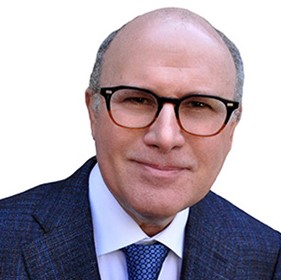Facebook Locks Down Privacy, But Lawmakers Demand the Key
Have you watched Dr. Martin Weiss’ 2020 Preview: Megatrends and Megaprofits video yet? Yesterday, he revealed six surprising forecasts PLUS the four most profitable megatrends for not just the next year, but the next decade.
One of those megatrends is the convergence of three transformative technologies — 5G, Artificial Intelligence and the Internet of Things.
Martin also gave away our editors’ top picks — seven specific recommendations from Tony Sagami, Sean Brodrick, Mike Larson and me — from our most expensive research services.
And the only way to get all this information is to watch the video recording of this urgent briefing. Click here to view it now.
Here’s another powerful tech trend I’m following, the online privacy wars, and the surprising winner of them …
Facebook (FB) is in the spotlight again due to privacy concerns. But the conversation isn’t following previous scripts.
Managers at the social media company are pressing tough, full end-to-end encryption for messaging, according to a New York Times story. The issue they’re running into is with law enforcement. The police want a back door to access platform content.
This fracas is a win for Facebook shareholders, and it could not come at a better time.
Company leaders and stakeholders have been under attack since the 2016 U.S. presidential election. In the months leading up to the vote, the social media portal became a sinkhole of disinformation campaigns.
Cambridge Analytica, a British political consulting firm, used misappropriated personal data and skillful analysis to influence key voting demographics in several vital swing states.
Following the election, critics carefully conflated the Cambridge scandal with lost privacy. The official Facebook response, a web of half-truths and public relation missteps, made that process much easier.
In one especially surreal episode, founder and CEO Mark Zuckerberg claimed not to know what data had been gathered, or even where it was. The optics could not have been worse.
In reality, Zuck was inadvertently exposing a truth about Facebook: Its structure makes it relatively easy for advertisers to test, target and deliver lots of different ads to people who are likely to be influenced.
Cambridge didn’t find a bug in the platform, it exploited the feature. Now, after years of demanding Facebook tighten security, law enforcement leaders want a back door.
This is a public fight Facebook needs. It’s a fight the company can win.
Atty. Gen. William Barr of the U.S. Department of Justice, U.K. Home Secretary Priti Patel and Peter Dutton, the Australian Minister of Home Affairs, wrote a letter to Zuckerberg in October.
They claim tough, end-to-end encryption on the platform will make it more difficult to root out sexual predators and other bad actors.
They want to link messaging with abundant profiles online.
They want to end actual online privacy.
In response, Facebook and Zuckerberg have become unlikely privacy warriors …
The social media company was famously built on the motto of moving fast and breaking things. Today the company boasts 2.45 billion Facebook members. Its sister applications, Facebook Messenger, Instagram and WhatsApp, are floating around 1 billion monthly active users apiece.
All these applications encrypt data by default.
Creating a back door would make everyone on the platform less secure. That’s according to Facebook product managers Will Cathcart of WhatsApp and Stan Chudnovsky at Facebook Messenger.
They argue a door opened to friendly governments would invite other, perhaps authoritative or repressive states, to also demand access.
And even if they are formally denied, the weaker security might allow them to force their way in — to the peril of dissidents, journalists and political rivals.
It’s a compelling argument.
It’s also a fight that is likely to draw others into the fray …
Alphabet (GOOGL) in September announced a plan to encrypt data at the browser level. The new protocol, according to the Wall Street Journal, would make it extremely difficult for internet service providers to track users.
The search giant partnered with Mozilla, another browser company. Curiously, the idea is being opposed by cable providers, wireless companies and a slew of politicians.
A month after receiving the letter from Barr, Patel and Dutton, audio of an internal Facebook meeting leaked to the Verge. On the recording, Zuckerberg makes an impassioned case for privacy because it’s the right thing to do, a phrase that sounds eerily similar to past comments from Apple (AAPL) CEO Tim Cook.
Related post: Apple, Alphabet & the Privacy War
Facebook and Apple have been at odds since Cook opined about surveillance capitalism in October 2018. However, a privacy fight for all the world to see put the leaders in the same bunker.
For Facebook investors, that is a very good thing.
The company has had a rough ride since 2016. In terms of politics, it might get worse. CNBC reported in October that 47 state attorneys general had signed on to investigate possible antitrust violations.
Despite this, the stock has performed well, rising 53% in 2019. Business is strong. Its place in the digital advertising ecosystem is assured. Politicians can’t stop people from using the site.
Related post: Big Revenues, Loyal Users Give Facebook a Lot to Smile About
Sales have grown in excess of 37% each of the last four years. During the third quarter ended Sept. 30, the company reported $17.65 billion in revenues, up 29% year-over-year. Operating profits rose 24% to $7.19 billion.
Shares trade at 21.9x forward earnings and 8.5x sales. That’s reasonable given its longer-term growth.
The stock is a steal if the company is truly on the verge of shaking its privacy baggage.
Investors should look to weaknesses as buying opportunities.
Best wishes,
Jon D. Markman




